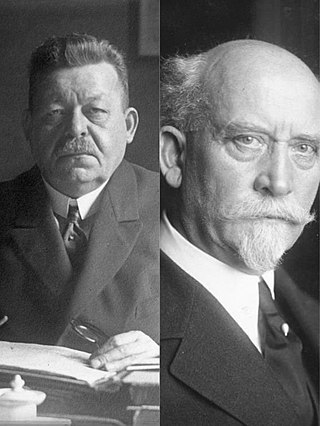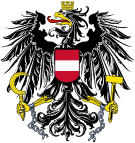
Early parliamentary elections were held in Austria on 10 October 1971, following electoral reforms intended to benefit smaller parties. The number of seats in the National Council was increased from 165 to 183, and the proportionality of the seat distribution was increased as well.

Federal elections were held in Germany on 19 January 1919, although members of the standing army in the east did not vote until 2 February. The elections were the first of the new Weimar Republic, which had been established after World War I and the Revolution of 1918–19, and the first with women's suffrage. The previous constituencies, which heavily overrepresented rural areas, were scrapped, and the elections held using a form of proportional representation. The voting age was also lowered from 25 to 20. Austrian citizens living in Germany were allowed to vote, with German citizens living in Austria being allowed to vote in the February 1919 Constitutional Assembly elections.

Legislative elections were held in Cisleithania, the northern and western ("Austrian") crown lands of Austria-Hungary, on 14 and 23 May 1907 to elect the members of the 11th Imperial Council. They were the first elections held under universal male suffrage, after an electoral reform abolishing tax paying requirements for voters had been adopted by the Council and was endorsed by Emperor Franz Joseph earlier in the year. However, seat allocations were based on tax revenues from the States.

Constituent Assembly elections were held in Austria on 16 February 1919.
Parliamentary elections were held in Hungary on 25 and 26 January 1920. However, they were only held in 164 districts. After the Treaty of Trianon was signed, the 44 districts previously occupied by Romania voted between 13 June and 5 July, whilst the 11 districts occupied by Serbia did not vote until 30 and 31 October 1921. The election was held with compulsory voting. In protest at this and other changes to the franchise that left 60% of the voting age population unable to vote, the Hungarian Social Democratic Party boycotted the elections, and called for its supporters to cast invalid votes, resulting in an unusually high number of blank or invalid votes – 12% in the January elections and over 20% in Budapest and other major cities.
The National Committee of Anti-Fascist War Veterans of the Albanian People was a pro-communist political party in Albania.
The German People's Party was a political party of the German-speaking group in the Cisleithanian part of the Austro-Hungarian Empire. It was founded in 1896 as a successor to the German National Party and was led by Otto Steinwender.

The German Freedom and Order Party was a political party in Austria.

The Centrist Democrats was a political party in Austria.

The German Democrats was a political party in Austria.

The Styrian Farmers' Party was a political party in Austria.

The Carinthian Farmers' Association was a political party in Austria.

The German People's Election Committee was a political party in Austria.

The Democratic Association of cities was a political party in Austria.

The Liberal Corporate Association of Salzburg was a political party in Austria.

The Civic Workers' Party or Civic Labour Party was a minor political party in Austria during the 1920s. It was led by former imperial foreign minister of Austria-Hungary, Ottokar Czernin.
The Economic Group was a political party in Estonia.
The Party of Independence and '48, also known mostly by its shortened form Independence Party, was one of the two major political parties in the Kingdom of Hungary within Austria-Hungary, along with the Liberal Party and then the National Party of Work. During its existence, the F48P strongly opposed the Austro-Hungarian Compromise of 1867. The party was revived after the fall of the Hungarian Soviet Republic and restoration of the monarchy.

The Labour Party is a minor political party in Moldova led by Gheorghe Sima.
The Agrarian Union Party was a political party in Romania.








